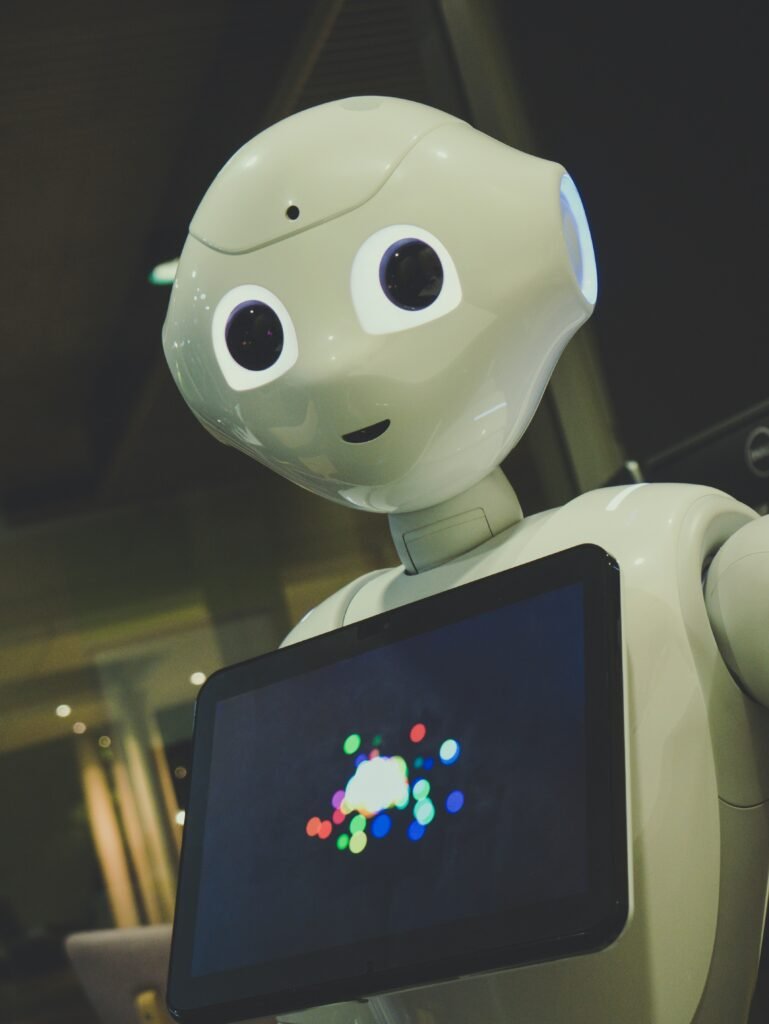Artificial intelligence (AI) has become a buzzword in today’s technological era, but what exactly is it and how does it work? AI refers to the ability of machines to exhibit human-like intelligence, enabling them to learn, reason, and perceive their surroundings. It involves the development of computer systems that can perform tasks that would typically require human intelligence. From voice assistants like Siri and Alexa to self-driving cars and personalized recommendations on streaming platforms, AI is all around us. But how does this remarkable technology actually function? Let’s explore the inner workings of AI and uncover the mysteries behind its incredible capabilities.
What is Artificial Intelligence?
Defining Artificial Intelligence
Artificial Intelligence (AI) refers to the technology that enables machines to imitate human intelligence and perform tasks that would typically require human intelligence. AI systems are designed to learn, reason, and make decisions based on data, similar to how humans do.
Goals of Artificial Intelligence
The primary goals of artificial intelligence are to enhance efficiency, improve accuracy, and automate repetitive tasks. AI aims to replicate or surpass human intelligence in various domains, such as language processing, image recognition, problem-solving, and decision-making.
Types of Artificial Intelligence
There are different types of artificial intelligence, each designed for specific purposes:
-
Narrow AI: Also known as weak AI, narrow AI is engineered to perform a specific task or a set of tasks. Examples include voice assistants like Siri, self-driving cars, and facial recognition systems.
-
General AI: General AI, also referred to as strong AI, is an advanced form of AI that exhibits human-like intelligence and can perform any intellectual task that a human being can do. Although currently hypothetical, the development of general AI is a long-term goal for many researchers in the field.
-
Superintelligent AI: Superintelligent AI refers to AI systems that surpass human intelligence and possess extraordinary cognitive abilities. This concept is mostly discussed in the realm of science fiction and remains a subject of ethical and philosophical debates.
-
Reactive Machines: Reactive machines can only react to current inputs without memory or past experiences. They cannot form new responses based on past data or learn from previous interactions. Chess-playing computers that analyze board positions without considering previous games are an example of reactive machines.
-
Limited Memory AI: Limited Memory AI incorporates memory into reactive machines, allowing them to make decisions based on past information. Self-driving cars and automated trading systems fall into this category, as they use historical data to improve decision-making.
-
Theory of Mind AI: Theory of Mind AI is a conceptual AI system that can understand human emotions, beliefs, and intentions. It can predict and explain human behavior based on mental state attributions.
-
Self-Aware AI: Self-aware AI refers to an AI system that has consciousness or self-awareness, similar to how humans are conscious of their existence and thoughts. While this type of AI is purely theoretical at present, it forms an intriguing topic within the field of AI.

How does Artificial Intelligence Work?
Data Collection
Artificial intelligence relies on extensive data collection to perform tasks effectively. Various sources, such as databases, websites, sensors, and user interaction, provide AI systems with the data needed to analyze patterns, make predictions, and generate insights.
Data Processing
Once the data is collected, it undergoes processing to prepare it for analysis. This processing involves cleaning the data, removing any inconsistencies or errors, and organizing it in a structured manner that can be readily interpreted by AI algorithms.
Machine Learning
Machine learning plays a crucial role in AI systems. It allows machines to learn from the provided data, recognize patterns, and make predictions or decisions without explicit programming. Machine learning algorithms adjust their behavior based on the data they process, improving their accuracy over time.
Neural Networks
Neural networks are a critical component of AI, mimicking the structure and function of a human brain. These interconnected nodes, or artificial neurons, enable the machine to learn and recognize complex patterns. By adjusting the weights assigned to each connection, neural networks can make sophisticated decisions and classifications.
Natural Language Processing
Natural Language Processing (NLP) focuses on enabling machines to understand, interpret, and respond to human language. NLP algorithms analyze text, speech, and other forms of human communication to extract meaning, sentiment, and intent. This technology is employed in voice assistants, chatbots, and language translation systems.
Computer Vision
Computer Vision involves teaching machines to process, analyze, and understand visual information, such as images and videos. AI systems equipped with computer vision algorithms can recognize objects, detect patterns, and interpret visual scenes. Applications include facial recognition, object recognition, and autonomous vehicle navigation.
Expert Systems
Expert systems are AI programs designed to emulate human expertise in specific domains or industries. They incorporate knowledge and rules acquired from experts and use them to solve complex problems or provide recommendations. Expert systems are used in medicine, finance, and other areas where specialized knowledge is crucial.
Predictive Analytics
Predictive analytics utilizes AI algorithms to analyze historical data, identify patterns, and make predictions about future events or trends. By understanding past behavior and trends, predictive analytics models can forecast outcomes, aiding decision-making and planning processes.
Decision Making
AI systems are capable of making decisions based on their learning and analysis. By considering various factors, including data, patterns, and predefined rules, AI can make informed decisions quickly and accurately, often surpassing human capabilities in complex scenarios.
Automation
Automation is a fundamental aspect of AI, enabling machines to carry out tasks without human intervention. AI-powered automation systems streamline processes, improve efficiency, and reduce errors. Industries like manufacturing, logistics, and customer service benefit greatly from adopting automated AI solutions.
In conclusion, artificial intelligence is a rapidly evolving technology that allows machines to imitate human intelligence and perform tasks with accuracy and efficiency. Through data collection, processing, machine learning, and the various types of AI, such as neural networks, natural language processing, and expert systems, AI systems can analyze information, make decisions, and automate tasks. As AI continues to develop, it holds the potential to revolutionize various industries and improve the overall human experience.





